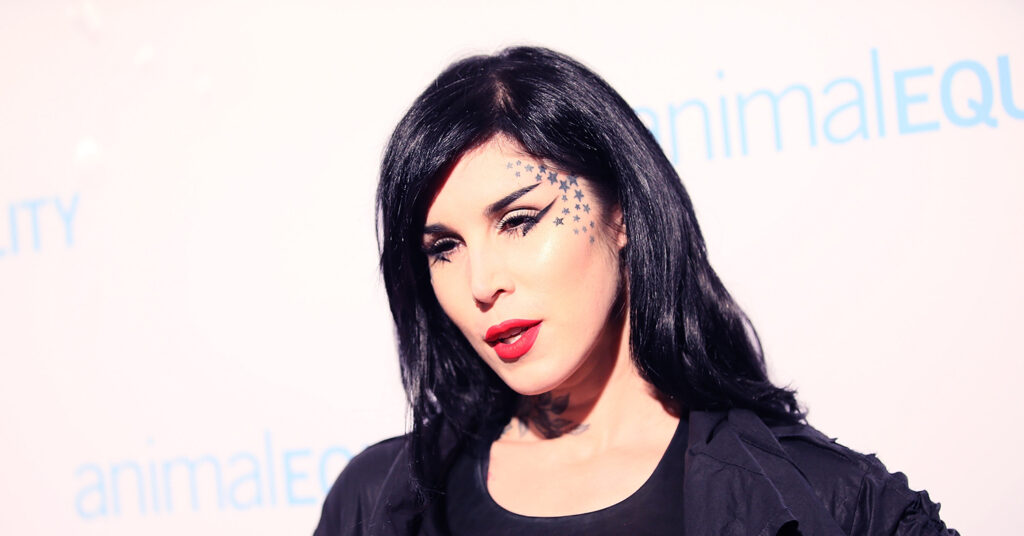Celebrity tattoo artist, makeup artist, entrepreneur, and vegan activist Kat Von D took to Instagram today, urging her 6.5 million followers to pay attention to the vaquita, a porpoise species that is critically endangered, largely due to illegal fishing practices in the Gulf of California.
“I can’t believe there are only approximately 12 of these beautiful sea creatures left alive! ? ,” Kat Von D wrote. “Like many other sea animals who unintentionally get caught in fishing nets, the Vaquita has fallen victim and is now on the verge of going extinct because of fishing. It crushes my heart and feels completely helpless at this point – and all I can do is strongly urge my friends and followers to please consider leaving fish off your plate. It’s the most effective form of activism one could do. #savethevaquita#vaquita #vegan”
The vaquita is a rare type of porpoise native to the northern part of the Gulf of California. Its population has declined by more than half over the past five years. In 2017, the International Committee for the Recovery of the Vaquita (CIRVA) reported that there fewer than 30 left in the wild, but as of this year, the organization revealed an even bleaker report. Today, only 12 vaquitas remain in the wild. In 2016, Barbara Taylor, a conservation biologist with the US National Oceanic and Atmosphere Administrations (NOAA) Southwest Fisheries Science Center said, “The possible extinction of the vaquita is the most important issue facing the marine mammal community right now.”
While commercial fishing is a major contributor to the decimation of the vaquita species, the solution to this issue is not as simple as leaving fish off the plate. The Marine Mammal Commission, an independent agency of the US government, highlights illegal fishing practices as the key driver in the rapid decline of vaquita populations. Vaquita often become ensnared in gillnets that have been discarded by illegal fishermen in the Gulf of California, who target a species of endangered fish called totoaba. Totoaba swim bladders, known as “aquatic cocaine” on the black market, are highly valued and can be sold for as much as $20,000 per bladder. Although the Mexican government outlawed gillnets last year in order to protect porpoises, stronger protections are required in this protected area in order to put a stop to the illegal fishing practices that have driven the vaquita to near extinction. It will take a combined effort of consumer and government action to completely eliminate this man-made threat to the vaquita population.
However, Kat Von D brings up a valid point: refusing to eat fish is an effective form of activism when it comes to protecting marine species. According to Oceana, an estimated 40 percent, roughly 63 billion pounds, of the world’s catch is bycatch. Bycatch is marine life not targeted by fishermen, which means that a little less than half of all fishing hauls are not for the market. Leaving fish off one’s plate not only protects marine species, it also protects the planet. Experts predict that the world’s fish stocks are set to collapse by 2048, which would disrupt global marine ecosystems. Thankfully, consumers are becoming more aware of the issue. Earlier this year, vegan seafood company Good Catch Foods reported that 51 percent of people in the US said that they would like to reduce the number of animal products they eat.
Image Credit: Kat Von D.


